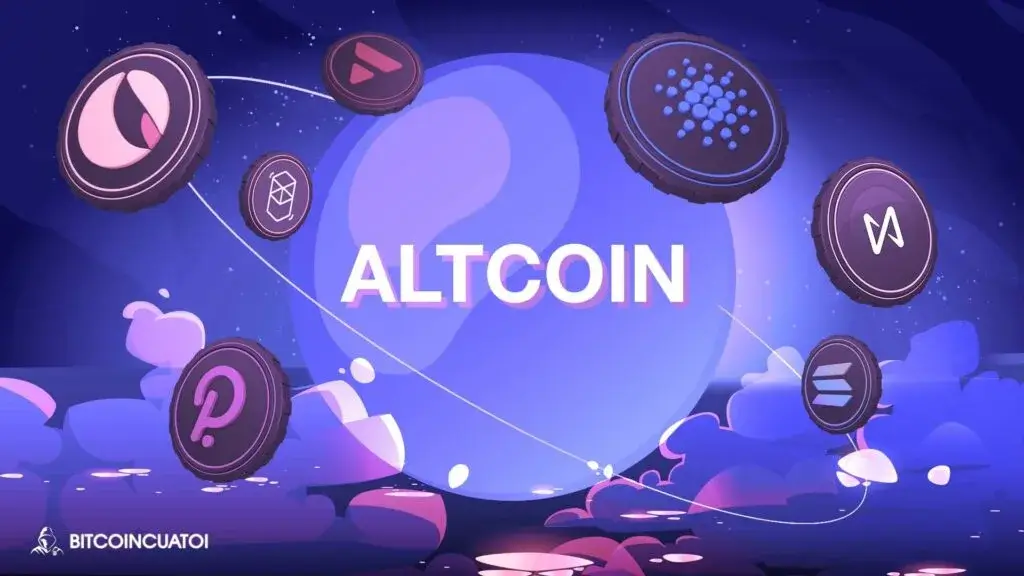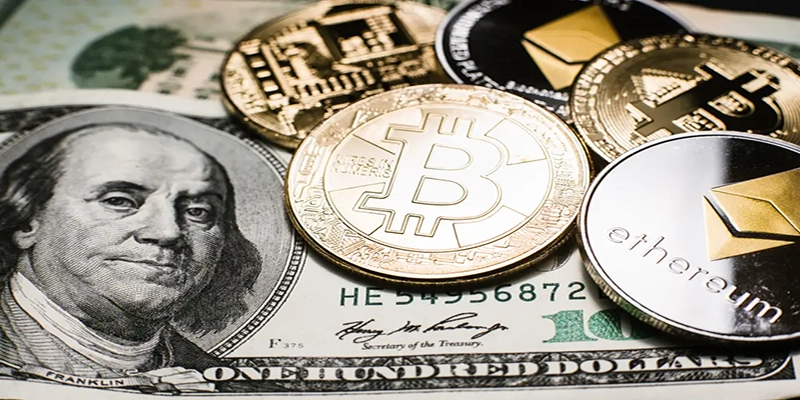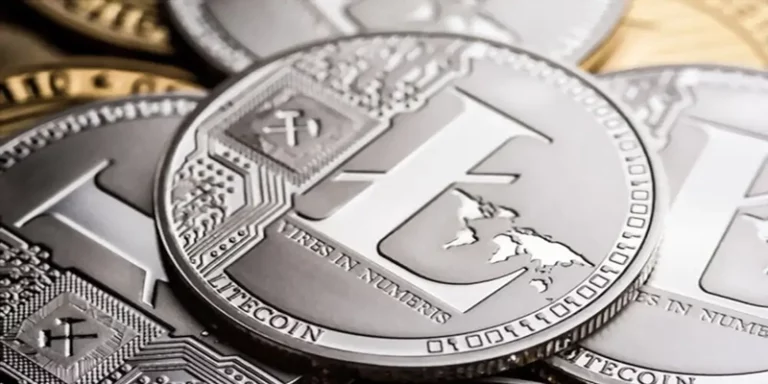What are Altcoins? Why are they Important?
Cryptocurrencies are all the rage right now, and for a good reason! With Bitcoin prices reaching new heights, people are scrambling to get into the cryptocurrency market. But what are cryptocurrencies? And more importantly, what are altcoins? And should you invest in them? his question often comes up in the cryptocurrency community, and there is no definitive answer.
Generally, altcoins are cryptocurrencies other than Bitcoin, and many were created in response to perceived problems with Bitcoin. For example, Litecoin was designed to be faster and more efficient than Bitcoin. Other popular altcoins include Ethereum, Ripple, and Dash. While not all altcoins will survive over the long term, they can provide exciting opportunities for investors and traders. We’ll see in detail what are these furthermore.
How do Altcoins work, and Should You Invest In one?
“Altcoins,” or Cryptocurrencies, are digital assets based on blockchain technology. Unlike traditional currencies, which central banks regulate, cryptocurrencies are decentralized and distributed across a network of computers.
Bitcoin, the first and most well-known cryptocurrency, was created in 2009 to allow peer-to-peer transactions without needing a third party such as a bank or credit card company. Since then, hundreds of different altcoins have been created, each with unique features and purposes. Some common altcoins include Litecoin, Ethereum, and Ripple.
Investing in altcoins can be risky, as the market is highly volatile and largely unregulated. However, for those willing to take on the risk, altcoins can offer the potential for high returns. When considering investing in any cryptocurrency, it’s essential to do your research and understand the risks involved.
Cryptocurrencies are a relatively new and untested technology, and they come with a great deal of trouble. That being said, for those willing to take on the risk, investing in altcoins can offer the potential for significant rewards in the longer run.
Types of Altcoins

Altcoins are essentially alternative versions of Bitcoin, with different rules and characteristics. Many altcoins are created to improve Bitcoin’s shortcomings or offer new features and capabilities. As a result, a wide variety of altcoins are available on the market, each with its advantages and disadvantages.
Ultimately, the best choice depends on your individual needs and preferences. However, by understanding the critical differences between the various altcoins, you can decide which one is right for you.
Below you will find the types of Altcoins and their explanations:
- Stablecoins
- Mining-based (Mining-Based vs Pre-mined)
- Staking-based
- Memecoins
- Utility Tokens
- Governance Tokens
- Security Tokens
- Forks
1. Stablecoins
A stablecoin is a type of cryptocurrency designed to maintain a stable value. Unlike other cryptocurrencies, which can be highly volatile, stablecoins are intended to provide a more stable and predictable investment. The most common type of stablecoin is the fiat-backed stablecoin, which is backed by a reserve of fiat currency (usually USD). This provides the stability of the fiat currency with the convenience and security of a blockchain-based asset.
2. Mining-Based (Mining-Based vs Pre-mined)
A mining-based altcoin uses proof-of-work (PoW) or proof-of-stake (PoS) as its consensus mechanism. PoW and PoS are algorithms that allow for the distributed consensus necessary for a blockchain-based asset. To secure the network and validate transactions, miners (or stakers) must dedicate time and resources to solving complex mathematical problems. In return for their efforts, miners (or stakers) are rewarded with a portion of the cryptocurrency.
Mining-based altcoins typically have a higher degree of decentralization than pre-mined altcoins, as they do not require a centralized authority to issue or distribute new tokens. However, mining can be costly and resource-intensive, limiting the decentralization of some mining-based altcoins.
3. Staking-Based
A staking-based altcoin uses proof-of-stake (PoS) as its consensus mechanism. PoS is an algorithm that allows for the distributed consensus necessary for a blockchain-based asset. To secure the network and validate transactions, stakers must dedicate time and resources to solving complex mathematical problems. In return for their efforts, stakers are rewarded with a portion of the cryptocurrency.
Staking-based altcoins typically have a higher degree of decentralization than pre-mined altcoins, as they do not require a centralized authority to issue or distribute new tokens. However, staking can be costly and resource-intensive, limiting the decentralization of some staking-based altcoins.
4. Memecoins
A memecoin is a cryptocurrency based on or inspired by an internet meme. Memecoins typically have lighthearted or humorous names and logos. The most famous example of a memecoin is Dogecoin, based on the Doge meme. While most memecoins are not intended to be serious investments, some have gained popularity and become valuable assets.
5. Utility Tokens
A utility token is a type of cryptocurrency designed to give users access to a particular service or application. Utility tokens are often used to fund the development of new blockchain-based projects. The most famous example of a utility token is Ethereum, which is used to pay for transaction fees and gas costs on the Ethereum network.
6. Governance Tokens
A governance token is a type of cryptocurrency that gives holders voting rights on decisions related to the blockchain-based project. Governance tokens are typically used to fund the development of new blockchain-based projects. The most famous example of a governance token is Tezos, which allows holders to vote on proposed changes to the Tezos protocol.
7. Security Tokens
A security token is a type of cryptocurrency representing an ownership stake in a company or asset. Security tokens are typically used to fund the development of new blockchain-based projects. The most famous example of a security token is Bitcoin, which represents an ownership stake in the Bitcoin network.
8. forks
A fork is a change to the software of a cryptocurrency that creates two separate versions of the blockchain with different rules. Forks can be created intentionally by cryptocurrency developers, or they can occur accidentally due to bugs or errors in the code.
Intentional forks are often used to upgrade a cryptocurrency’s software or create a new cryptocurrency with different features. Accidental forks can cause confusion and chaos, as they can split the community of users and miners into two factions.
Can an Altcoin Ever Surpass a Bitcoin?
It is doubtful that any altcoin will ever surpass Bitcoin regarding market capitalization or popularity. Bitcoin is the original cryptocurrency, and it has the first-mover advantage. It also has a large and loyal community of users and developers. However, many altcoins have unique features and benefits that make them appealing to specific users.
For example, Litecoin has often been considered the silver to Bitcoin’s gold, as it has faster transaction times and lower fees. Ethereum is a popular platform for building decentralized applications, and Ripple is a popular choice for banking institutions. Each altcoin has its strengths and weaknesses, and it is unlikely that any one coin will ever dominate the market.
Bitcoin and altcoin Relationship
Bitcoin and altcoins are two different types of cryptocurrency. Bitcoin is the original cryptocurrency, and it has the first-mover advantage. Altcoins are alternative coins that were created after Bitcoin. They typically have unique features and benefits that make them appealing to specific users.
Which Altcoins are longstanding?
With the rise of Bitcoin, many other cryptocurrencies, or Altcoins, have followed suit. While some investors remain skeptical of Altcoins, others believe in their staying power. So, what Altcoins are here to stay?
let’s take a look at Ethereum. Launched in 2015, Ethereum is a decentralized platform that runs smart contracts or applications that run exactly as programmed without any possibility of fraud or third-party interference. Thanks to its popularity, Ethereum has become one of the most widely traded cryptocurrencies on the market.
Litecoin is another cryptocurrency that is often compared to Bitcoin. Created in 2011, Litecoin is similar to Bitcoin in many ways but with a few key differences. For instance, Litecoin has faster transaction times and a higher maximum supply. These characteristics have made Litecoin a popular choice for those looking for an alternative to Bitcoin.
Ripple is a cryptocurrency financial institution primarily used to settle international payments quickly and cheaply. While Ripple is not as widely traded as Ethereum or Litecoin, its use by central banks and financial institutions gives it a level of stability that many other Altcoins lack.
What Does the Future Hold for Altcoins, and Are All Made Equal?
The future of altcoins is uncertain. While some coins have gained popularity and become valuable assets, others have failed to gain traction and have been forgotten. It is unclear which currencies will succeed long-term, and new coins may be created with even more innovative features.
However, it is unlikely that any one coin will ever dominate the market. Each currency has its strengths and weaknesses, and it is up to the users to decide which coins they want to invest in.
Benefits and Risk of Investing in Altcoins
Conclusion
Altcoins are becoming more popular as people search for ways to invest their money outside the traditional financial system. While some altcoins may not have a long-term future, others could provide significant returns on investment. As always, do your research before investing in any cryptocurrency.







